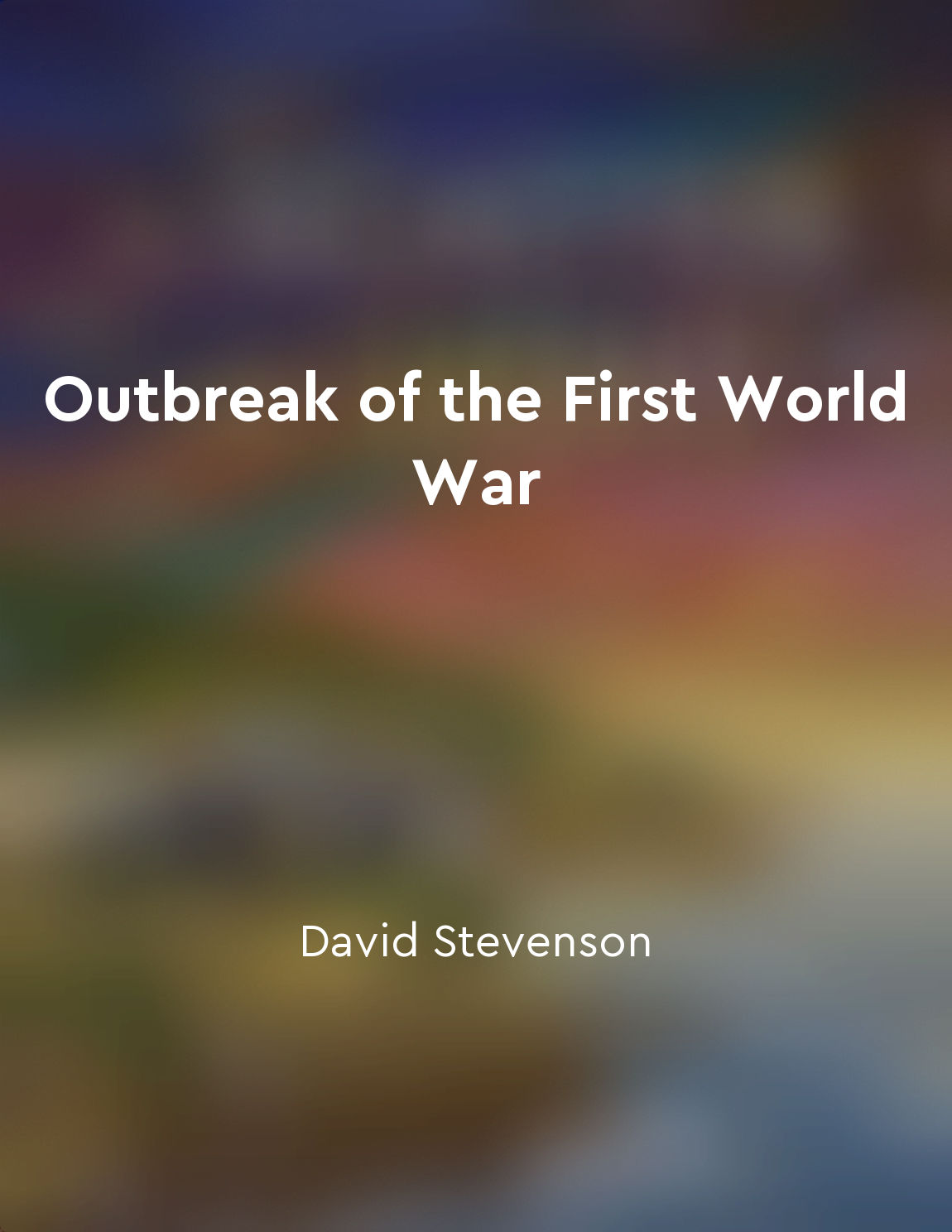Mobilization of military forces from "summary" of Outbreak of the First World War by David Stevenson
The mobilization of military forces was a pivotal aspect in the outbreak of the First World War. This process involved the rapid deployment and organization of military troops and resources in response to escalating tensions and threats of conflict. Mobilization was a complex and intricate operation that required meticulous planning, coordination, and execution to ensure the readiness and effectiveness of the armed forces. The mobilization of military forces was not simply a matter of moving troops from one location to another. It involved a wide range of activities, such as the assembly of troops, the distribution of equipment and supplies, the establishment of communication networks, and the implementation of strategic plans and tactics. Mobilization also required the cooperation and collaboration of various military and civilian agencies to facilitate the rapid deployment and deployment of forces. One of the key challenges of mobilization was the need to balance speed with efficiency. The rapid mobilization of military forces was essential to gain a strategic advantage and respond effectively to the evolving situation on the ground. However, this had to be balanced with the need to ensure that troops were adequately trained, equipped, and prepared for combat. The success of mobilization hinged on the ability of military leaders to make quick and informed decisions while also considering the long-term implications of their actions. Moreover, mobilization was not a one-time event but rather a continuous process that evolved as the conflict unfolded. As tensions escalated and the threat of war loomed larger, military forces had to adapt and adjust their mobilization efforts to meet the changing demands of the battlefield. This required flexibility, foresight, and the ability to anticipate and respond to unexpected developments.- The mobilization of military forces was a critical factor in the outbreak of the First World War. It was a complex and multifaceted process that required careful planning, coordination, and execution to ensure the readiness and effectiveness of the armed forces. The success of mobilization hinged on the ability of military leaders to balance speed with efficiency, adapt to changing circumstances, and make informed decisions in the face of uncertainty.
Similar Posts
Success requires organization
In the world of activism, success is not a matter of luck or chance. It requires a clear and strategic approach. This approach ...
Remain humble and open to feedback
Remaining humble and open to feedback is critical for personal and professional growth. It requires a willingness to admit mist...
Victory goes to the one who is best prepared
The key to success in any endeavor lies in preparation. Those who are most prepared are the ones who are most likely to achieve...
Resourcefulness necessary
The ability to think quickly and act decisively is paramount in the face of adversity. When faced with unexpected challenges, o...
Assassination of Archduke Franz Ferdinand sparks crisis
The assassination of Archduke Franz Ferdinand, heir to the Austro-Hungarian throne, on 28 June 1914, in Sarajevo, sparked a cri...

Build alliances to strengthen your position
In warfare, it is essential to form alliances with other parties in order to bolster one's own position on the battlefield. By ...
Learning from past mistakes is important for improvement
Throughout history, those who have achieved greatness in the art of war have understood the importance of reflecting on past mi...


